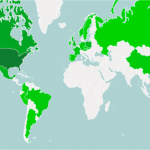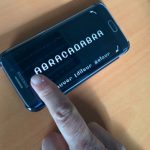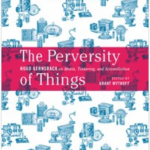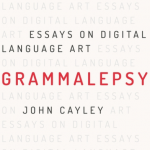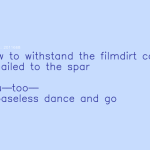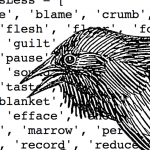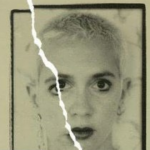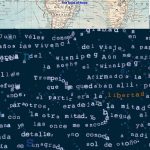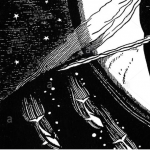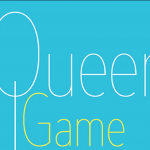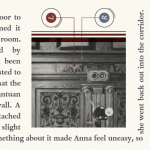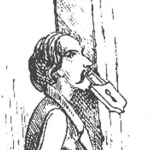2018
At the moment when post-fictional fictions, essayistic fictions, and design fictions emerge as a cultural dominant, Rettberg, Swanstrom, Nesheim, Anderson and Pold discuss an emerging "aesthetics of infrastructure." Quietly condoned, mostly unnoticed installations of "Camouflaged Cell Concealment Sites" are now being visited by artists such as Betty Beaumont and Trevor Paglen. When our cloudy digital industries are so busily constructing cell phone towers that look like pine trees or Saguaro cactuses (sort of), the role of literary and visual artists may be simply to document these found fictions - for as long as they don't get arrested.
This conversation is published as the second in a series of texts centered around the publication of The Metainterface by Søren Pold and Christian Ulrik Andersen. Other essays in the series include: The Metainterface of the Clouds, Voices from Troubled Shores: Toxi•City: a Climate Change Narrative and Room for So Much World: A Conversation with Shelley Jackson.
In this essay, Doris Hambuch uses the image-based work of Arabic cartoonist Khaled Al Jabri to address concerns of technological dependence to reconsider our use of screens. Rather than simply reprimanding readers about the potentially negative dependence of our contemporary society on technology and its screens, Hambuch instead proposes that we look to Al Jabri's work as a way of reconsidering the role of the screen in visual poetics and graphic literature.
In her essay, Egyptian elit scholar Reham Hosny observes and quantifies the ways that Arabic electronic literature has been historically underrepresented in the predominant critical venues like the ELO's Electronic Literature Collections and other central repositories for the dissemination and study of e-lit. Rather than simply observing this vacancy, however, Hosny proposes real, practical methods for addressing and bridging this discrepancy, bringing new works to light and encouraging translation, open access, and consideration of the language-based and nationalist biases in the scholarship surrounding elit.
In this essay, John Barber argues that sound suggests a new and valuable way of approaching and considering Arabic electronic literature. Based on the oral histories of Arab cultures, the use of sound in Arabic electronic literature provides a way of knowing and being in a literary world, real or imagined. Sound makes readers re-think their relational experiences with others, with themselves, and the spaces and places they inhabit. These shifting relationships promote interesting opportunities for Arabic electronic literature.
In this essay, Serge Bouchardon looks to electronic literary and its important predecessors in a way that prioritizes gesture and manipulation. Bouchardon interrogates how technology alters and opens the way that literature can be materially engaged-with by its readers, a way that deliberately encourages its readers to engage physically and agentially with the text. In this way, Bouchardon reveals a way of critiquing electronic literature that expands upon the physically-engaging properties of print.
O'Sullivan's essay appears at about the same time as a post to the Electronic Literature Organization list, revealing details of the Summer 2019 ELO Conference & Media Arts Festival, to be hosted by O'Sullivan at University College Cork, Ireland: http://elo2019.ucc.ie/
This discussion is adapted from a presentation by Roderick Coover and Scott Rettberg of Toxi•City and other CRchange projects at the Arts Santa Mònica museum in Barcelona on March 3, 2016.Toxi•City was exhibited there as part of the “Paraules Pixelades” exhibition.
This conversation is published as the third in a series of texts centered around the publication of The Metainterface by Søren Pold and Christian Ulrik Andersen. Other essays in the series include: The Metainterface of the Clouds, Always Inside, Always Enfolded into The Metainterface: A Roundtable Discussion. and Room for So Much World: A Conversation with Shelley Jackson.
The following assemblage, one of a series initiated with ebr version 7.0, is composed of four elements: a presentation (for release in October 2018) of Søren Bro Pold & Christian Ulrik Andersen’s The Metainterface including an excerpt from “The Cloud Interface: Experiences of a Metainterface World” chapter of the book (with permission from The MIT Press); a discussion (November 2018) by Scott Rettberg and Roderick Coover about the visual and narrative design of Toxi•City: a Climate Change Narrative, and a discussion of issues raised by The Metainterface (December 2018) that were taken up by the Bergen Electronic Literature Research Group during the EcoDH seminar, University of Bergen, June 14, 2018, and an interview with Shelley Jackson (January 2019) focused on her project Snow and her new novel, Riddance; or, The Sybil Joines Vocational School for Ghost Speakers & Hearing-Mouth Children. Contributors: Christian Ulrik Andersen, Roderick Coover, Shelley Jackson, Elisabeth Nesheim, Scott Rettberg, and Lisa Swanstrom.
This essay is published as the first in a series of texts centered around the publication of The Metainterface by Søren Pold and Christian Ulrik Andersen. Other essays in the series include: Always Inside, Always Enfolded into The Metainterface: A Roundtable Discussion., Voices from Troubled Shores: Toxi•City: a Climate Change Narrative and Room for So Much World: A Conversation with Shelley Jackson.
A timely revaluation of Hugo Gernsback, the Luxembourgish-American tinkerer who regarded science fiction not merely as a literary form or fantastic escape, but also, according to Grant Wythoff, as a way for readers to interact with and reflect on media and (not least) to know where tools can be found to gather knowledge on their own. More of a community of tinkerers than a literary movement or social media network, Gernsback's early and amateurish engagements with technology can help us to gauge what is lost in the transition to corporatist black boxery.
Cayley's book, Grammalepsy, is the first in the Bloomsbury series on Electronic Literature, due out this year (2018). A symptom of language whose therapeutic potentialities are passed over by commercial digitization, the term “Grammalepsy” suggests a lapse in designation. Cayley's book can remind us of the generative difference in any act of signification, in writing on a page no less than coding on silicon. There is no reason why the latter, so different from our neurological circuits, should be any better than any other conventional designation at encapsulating and communicating thought. The fact that literary theorists (and also digital makers like Cayley) place their work and thought self-consciously in the margins of what is now a digital consensus, suggests the presence of a long-standing (and continuing) literary counter-history to the Digital Humanities, that are too often characterized by datafication, single-entendre designation, and instrumentalist tendencies.
In a paper presented at the “Arabic Electronic Literature" conference in Dubai (February, 2018), N. Katherine Hayles considers born digital writing as a cognitive assemblage of technical devices and readerly, interpretive activity.
This essay has been reprinted from the journal CounterText (2.2) by permission of Edinburgh University Press.
A first draft of this essay was presented at the 2017 ELO Conference at Porto, in a panel organized by the "Nar-Trans" group of the University of Granada.
Even as the first biography of Kathy Acker appears, we have word of a newly assembled Acker archive in Cologne, under the curatorship of Daniel Schulz. The gist of which, could be to re-orient Acker's personal relationships to "the politics inherent in Acker's life."
"[T]ranslation is merely a preliminary way of coming to terms with the foreignness of languages to each other." (Walter Benjamin, "The Task of the Translator" [1921])
Instead of simply reviewing Vibrant Matter byJane Bennett (Duke 2010), author Dale Enggass applies Bennett's "Political Ecology of Things" to longstanding (and not yet resolved) themes of salvation, materialism and transcendence in Melville's Moby-Dick and Pamela Lu's Ambient Parking Lot.
Bergthaller's essay originally appeared in the collection, Ecological Thought in Germany. It is reprinted here, with permissions from Lexington Books, as part of an ebr gathering on Natural Media (December 2019).
Addressing a lacuna in games studies, Jason Lajoie makes a case for why a queer games studies is needed, and he shows how these two areas of study are united in Bonnie Ruberg's and Adrienne Shaw's collection.
What binds literature, electronic literature and games is "the shaping and networking of the imagination." Drawing on the ideas of Damasio, Walton and Sartre, Gordon Calleja looks at the synthesizing role of the imagination in narrative indie games.
Beginning as a talk delivered at the National University of Kyiv-Mohyla Academy, Ukraine May 17, 2017, now edited and amplified for publication in the electronic book review and the 2018 collection of ebr essays forthcoming from Bloomsbury Press.


